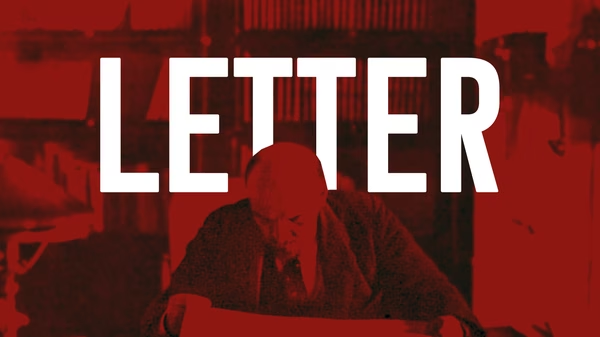[What follows has been inspired by political anger of sorts. This is aimed at police problems that have come to the forefront, due to personally inspirational expression by certain individuals in social media. Eric Levitz was not one of them only because he wrote a full-blown article! Meanwhile, political anger is also aimed, perhaps too personally, at online hypocrisy that I may have been exposed to within that same social media.]
Political kudos is in order for Eric Levitz’s article “Defunding the Police Is Not Enough“:
Bringing justice and peace to disadvantaged communities throughout our country will undoubtedly require much more than “police reform.”
But doing so will also require more than cutting police budgets.
The article demonstrates robust distinction between political education and political agitation.
On the other hand, political criticism is in order for Eddie Ford’s article in the Weekly Worker calling for the immediate abolition of the police:
The left should learn from this and once again take up the cudgels of consistent democracy. That must include the demand for a popular militia and the abolition of the police […]
By calling merely for a people’s militia to replace the police, the comradely article does not demonstrate the same level of distinction between political education and political agitation. Popular militias are needed here and now for the freedom of class-strugglist assembly and association of the dispossessed, but not for either premature r-r-r-revolutionary impulses or replacing the concept of policing.
In the middle stands Julien Salingue’s orthodox Trotskyist article in International Viewpoint:
To advocate the disappearance “here and now” of the police is to ignore this difficulty, and it is one of the worst means of combating the illusions according to which one could build a global alternative to the police force without posing the question of the abolition of the state. In this sense, it is important to articulate immediate demands to weaken the police and fight against their violence, alternative practices tending to demonstrate that the police are not a “necessary evil”, and an overall political project of overthrowing capitalism.
[The positioning of the article is not a surprise to comrades who have noted the broader organization’s careful reconsideration of the revolutionary strategy of Orthodox Marxism itself, Second International Marxism, as adapted to today’s circumstances, leaving behind all the other Trotskyist sects.]
Advocates of racial justice have put forward, rather concretely, “alternative forms of community-based violence prevention and conflict mediation,” to quote Levitz, which would be much more competent than popular militias.
Long-Term Programmatic ConsiderationsThe recent policing debates do bring forward distinctions between the core elements of the Marx-Engels minimum program – strictly political measures of participatory-democratic overhaul based on those enacted by the Paris Commune, all of which culminate in the strictly political dictatorship of the proletariat – and the Orthodox Marxist perspective on the minimum program, which made the historic mistake of conflating bourgeois-constitutional overhaul with substantive democratic overhaul.
A fully educated Marx-Engels minimum take on the policing question should unquestioningly articulate a comprehensive solution well beyond “abolition of the police” and fetishes for popular militias.
An equally educated take, at the level of immediate and real reforms, should not settle for defending civil or other democratic rights here and now (a form of broad economism plaguing much of the left today), but should advance them now while being quite cognizant of the need above.
Neo-Orthodox PerspectiveAs noted by Salingue, “abolition of the police” is conceived by the collective A World Without Police as the triptych “disempower, disarm, disband.” For the purposes of a neo-orthodox perspective, “disband” needs to be set aside until more appropriate circumstances for the broader working class. In its stead should be laundry list of additional d-words. “Disarm” could use another word, since deprivation of mere handguns is not being envisioned.
The suggested words below for accompanying “disempower” are by no means comprehensive.
Demilitarize: This would be a more appropriate substitute for “disarm” in the immediate here and now.
De-unionize: While police forces exist within the wage-labour system, they are one of a few occupations that do not contribute to the development of society’s labour power and its capabilities. Because of this, they do not belong to the working class proper. Given the long history of anti-labour repression by the police, mere defunding, such as advocated by socialists like Kshama Sawant, is insufficient even economically. This economic term goes substantially beyond that.
De-immunize: This refers to qualified immunity, which provides police officers a great deal of legal protection from litigation concerning police brutality, other blatant civil rights violations, and anti-labour repression.
De-task: The word “disempower” typically refers to matters other than the purposeful establishment of alternative forms of community-based violence prevention and conflict mediation, and the transfer of mandates and resources to them. This term focuses on what is more important than the number of police stations, the number of police units, the recruitment of new police officers, etc. Included within the scope of this term would be the removal of police officers from schools, however lightly armed.
Overall, something like this:
The disempowerment and demilitarization of the police, the de-unionization and de-immunization of all police officers, and the de-tasking from all police departments of functions more suitable for alternative forms of community-based violence prevention and conflict mediation.
Again, the suggestions above are by no means comprehensive.
– Jacob Richter
Liked it? Take a second to support Cosmonaut on Patreon! At Cosmonaut Magazine we strive to create a culture of open debate and discussion. Please write to us at submissions@cosmonautmag.com if you have any criticism or commentary you would like to have published in our letters section.
